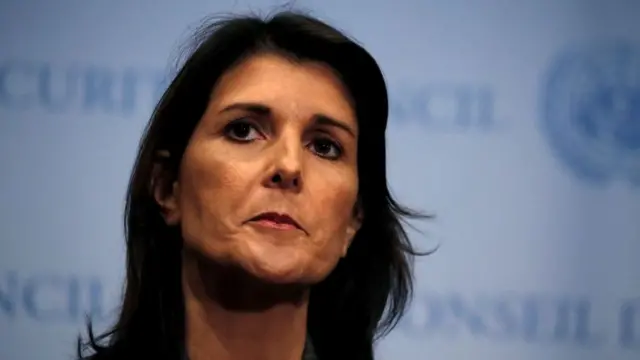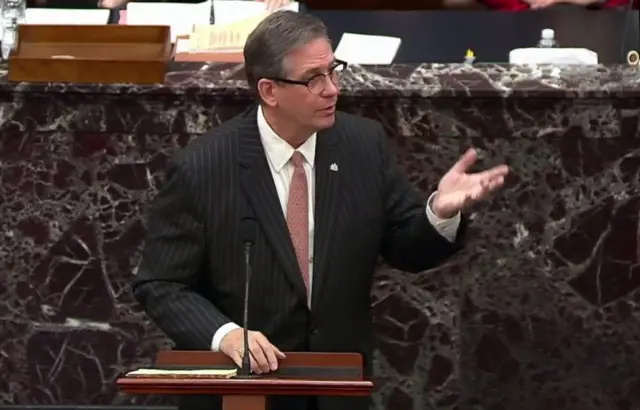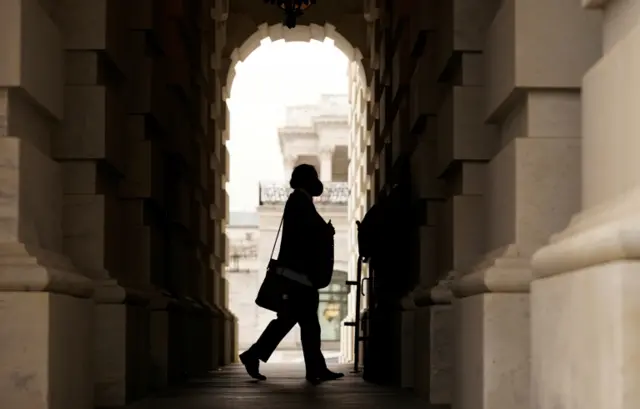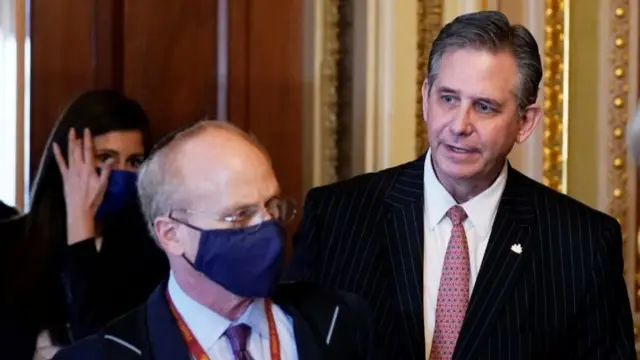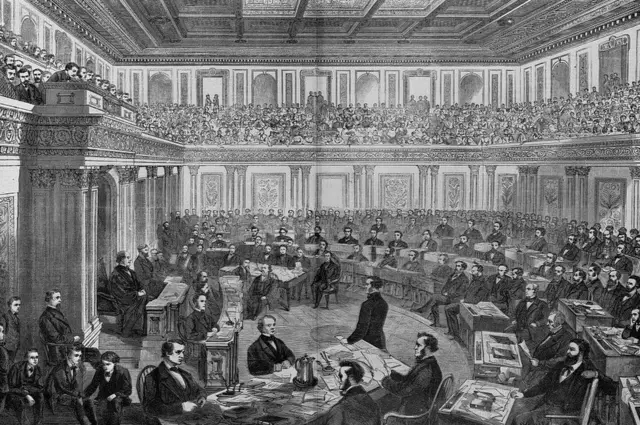How Democrats objected to Trump's 2016 election victorypublished at 17:49 GMT 12 February 2021
The impeachment trial centres around Donald Trump's objection to the election results.
When Congress met last month to certify the results, Trump had over 100 Republican lawmakers backing him up and objecting to Joe Biden's victory.
But in 2017 when Trump had just won the presidential race, the shoe was on the other foot, with a handful of Democrats objecting to certifying the results.
Trump lawyer Michael Van der Veen earlier shared a montage of some of these lawmakers, including lead impeachment manager Jamie Raskin.
Here's how Biden - who was then vice-president and presided over certifying the results - reacted when faced with those objections:
How an election is supposed to be certified
